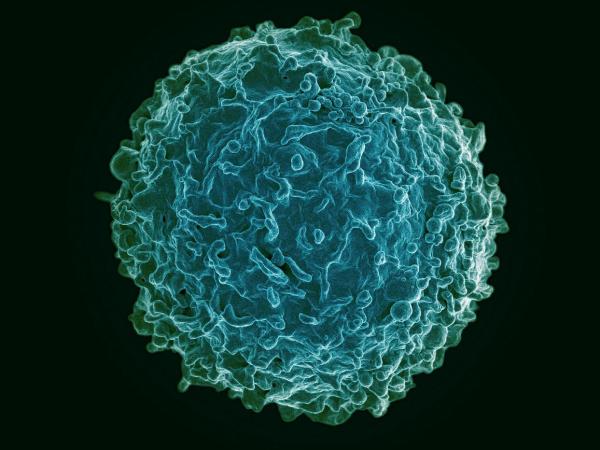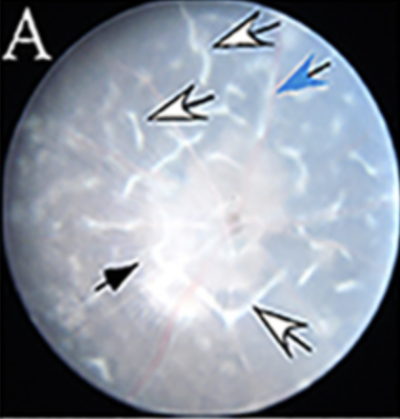Immune Cells Produce Potent Packages of Anti-Inflammatory Molecule
Experimental Treatment Curbs Autoimmune Eye Disease in Mice
Our cells produce a wide range of chemicals necessary for good health, but when they cannot manufacture enough of these substances, scientists can use cells cultivated in their labs to pick up the slack. In a promising example of this approach, IRP scientists stimulated lab-grown immune cells to produce tiny bundles of an important anti-inflammatory molecule and used those packages to successfully treat a potentially blinding autoimmune disease in mice.



